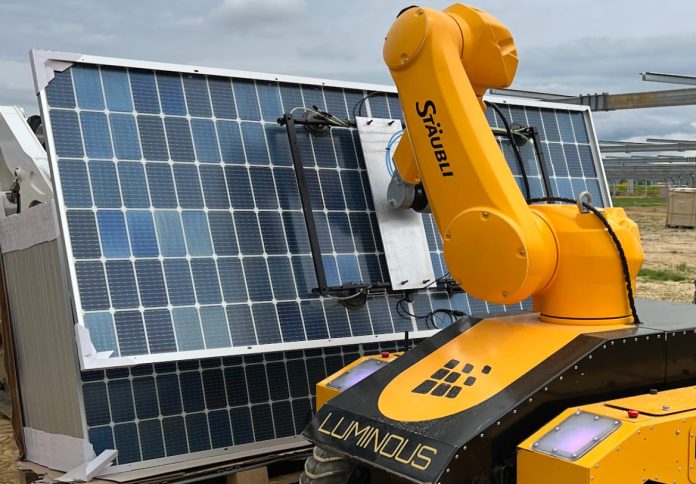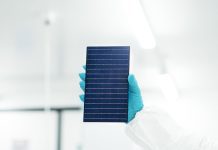
Robotics company Luminous has been awarded $4.9 million as the inaugural recipient of the Australian Renewable Energy Agency’s (ARENA) $100 million Solar ScaleUp Challenge, a global initiative aimed at cutting the cost of large-scale solar projects through innovative solutions.
The funding will support the deployment of Luminous’ LUMI robot, an AI-powered automation system designed to streamline one of the most labour-intensive aspects of solar construction: panel installation.
The LUMI robot autonomously positions solar modules onto racking structures, allowing workers to complete the final securing process. Luminous said this automation significantly reduces manual handling, improves safety, and boosts installation efficiency.
ARENA CEO Darren Miller said supporting innovation that brings down deployment and operational costs is essential to achieving the agency’s goal of ultra low-cost solar.
“ARENA has set an ambitious goal to reduce the installed cost of solar to 30 cents per watt and bring the levelised cost of electricity below $20 per megawatt hour,” Miller said.
“Solutions like LUMI are key to reducing costs and maintaining Australia’s leading role in the development and innovation of solar technologies.”
Luminous said LUMI can help workers install panels up to 3.5 times faster than traditional methods without requiring heavy lifting, and that a full fleet of five robots could help cut total solar farm costs by up to 6.2 per cent. The ARENA-funded project marks the first global deployment of a full LUMI robot fleet.
The robots will be deployed in partnership with engineering and construction firm Equans at two large solar sites: the 440-megawatt Neoen Culcairn Solar Farm in New South Wales and the 250-megawatt Engie Goorambat East Solar Farm in Victoria.
Luminous CEO Jay M. Wong said the company is proud to be working with ARENA and Equans to demonstrate the technology’s potential in Australia.
“With LUMI, we’re not just introducing a robot – we’re setting out to redefine the standard for how solar farms are built and help sites energise faster and safer,” Wong said.
“Deploying our LUMI fleet in Australia will allow us to capture the data, performance insights and real-world impact needed to drive global adoption.”


















